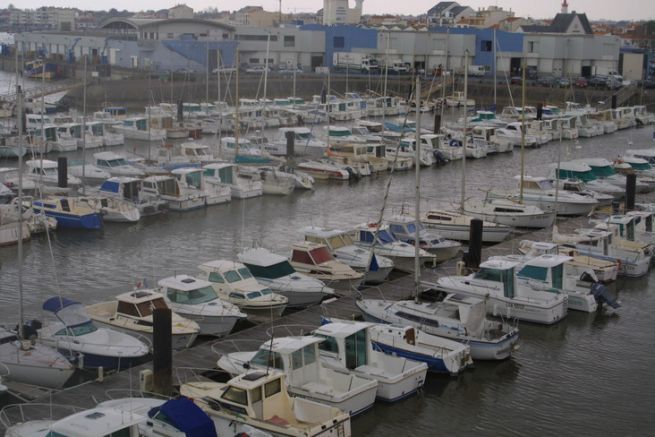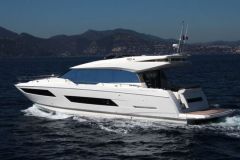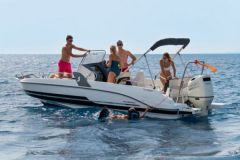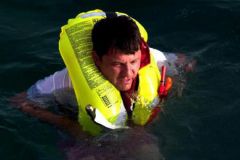Offering your boat for rent means obtaining part of the financing for it, its tenders or its maintenance. It also means meeting legal obligations, which will allow you to approach this activity like a pro. We spoke to you about tax obligations in this article and let's also look at the regulatory obligations
The insurance of the rented boat
Speaking of responsibility, renting a boat is about insuring the thing that we're going to put at the disposal of the tenants. If some insurance contracts offer, by default, a few rentals per year, they are not strictly speaking contracts with the possibility of renting. It is therefore important to protect yourself against possible worries by taking out specific insurance or an extension to your existing contract. The cost of such an extension generally represents about one third of the cost of an insurance without this possibility.
Some collaborative platforms offer an insurance policy covering the use made of the boat during the rental period as an option to the renter. It is up to you to check the clauses and scope of this policy.
A different approach to Division 240

The famous division 240, "SAFETY RULES APPLICABLE TO SHIPPING AT SEA ON BOATS LESS THAN OR EQUAL TO 24 M IN LENGTH" defines all the safety rules, equipment and procedures that govern our practice. It makes a clear difference between using for oneself and making a vessel available.
As the owner of the rented boat, new responsibilities arise for you. Notably, this is what we are reminded by the www.service-public.fr website, the annual special audit of the vessel. It proposes in its annex 240-A-2 a form to be filled in yourself of all the points checked. This check ranges from the availability (and non-expiry date) of the fumigants to the proper functioning of the GPS. It is your responsibility to check, at least once a year, the almost 70 different points of your boat. You will have to draw up a report and make it available to each renter. This is a self-certification but in case of false declaration, you will be held responsible.
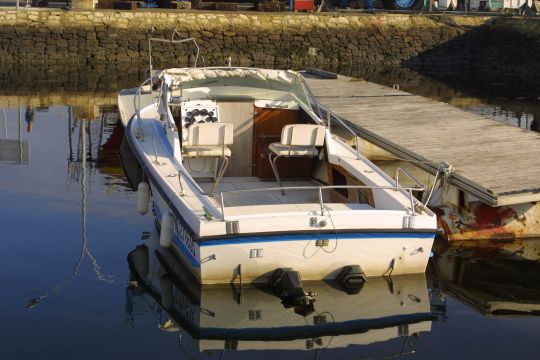
What documents to provide to the tenant?
If the first document that comes to the landlord's mind is the leasing agreement, this document should not be rushed, nor should exclusions or obligations that are far too restrictive be introduced. Contract law is a very broad field and it would be impossible to cover all points here. Nevertheless, certain references are absolutely necessary, namely :
- The full identity of the owner (ideally with a quick way to reach him/her)
- The complete identity of the tenant (with a copy of one or two official identity papers)
- The complete identification of the rented boat (registration, name, description, dimensions, particular signs ...)
- The date and time of the beginning of the rental as well as the place where you will be picked up.
- The date and time of the end of the rental period, as well as the expected place of return.
- The amount of the deposit, the method of its payment and its status (blocked or not, in cash, collected ...)
- The total price of the rental from the moment of taking into account to the moment of return
- The cost of possible delays
This document must be drawn up in two copies, each signed, one for the tenant and one for the owner. Never take the risk of starting a rental, whether you are a landlord or tenant, without your version of this document. It would be saying goodbye to your boat in one case, it would be saying hello to the police in the other case!
After the rental contract, the deed of francization of the boat will have to be available. Accompanied by the annual control certification we mentioned earlier. The insurance policy (with the contact details of the insurer in case of concern) will have to be at the disposal of the renter. And it's not over yet. You will have to provide your renter with the safety plan of the boat (also called the evacuation plan). Finally, although it is not mandatory for the owner to do so, we recommend that you provide your renter with a tide directory, a map and a nautical guide of the area from which he will be leaving, if only to ensure you, as the owner, that he will have the minimum subsistence level.
Then, we recommend that you carry out, in the presence of the lessee, an inventory of the on-board equipment, the granularity of which you will define. Nevertheless, the list of all the safety equipment seems to us to be the absolute minimum, the list of small spoons will remain at your discretion. It is recommended that both the hirer and the owner sign this inventory, with each party retaining a version.
Finally, an inventory of the interior and exterior of the boat is necessary. It will include not only a state of what is fixed (mature, engine ...) and what is moving (fuel, oil, water ...) and the documentation provided. As for the inventory, two versions of this document, one for each, will save you a lot of discussion on your return.
What equipment to provide to the tenant?
Division 240 provides a complete list of equipment required, depending on the type of navigation. Chloe has provided us with a complete and detailed list of this equipment in her article on mandatory safety equipment on board .
But, here, remember that you are the owner and provide a boat. Your responsibility is, therefore, to ensure that all this equipment is available AND operational. Out of the question, here, as it can happen (wrongly) to do it for yourself, to postpone to the next season the replacement of the lifejacket inflation cartridges.
Professionalism is a responsibility you take.
Rental, real advantages for owners
All these obligations and steps can seem very restrictive and distressing. They should not make you forget that renting a boat has advantages that are not limited to the purely financial aspect:
- The hull will get less dirt than if you stand still..
- There's nothing worse for an engine than not running..
- Your tenants are sharper eyes to detect the little things that go wrong..
- Awnings and other bits love the sea and salt water
- A boat that goes out will be less likely to be burglarized or squatted..
- Each rental will require a cleaning of the boat, so it will be in better overall condition
And for the tenants, too
Meet new people, exchange ideas, give or receive advice, discover unknown places... Explain how the boat works, its whims and its capacities. But aren't these all the reasons that made us become yachtsmen? The pleasure of sharing?
It is because we like this activity that we like to share it with others, whether they are more or less used to the sea. Renting out your boat means allowing other boaters to discover this pleasure, it means seeing delighted children returning to the pontoon on Sunday evening, it means advising a fishing spot or a sheltered anchorage area to those who do not know the area. It's sharing our passion.

 /
/ 